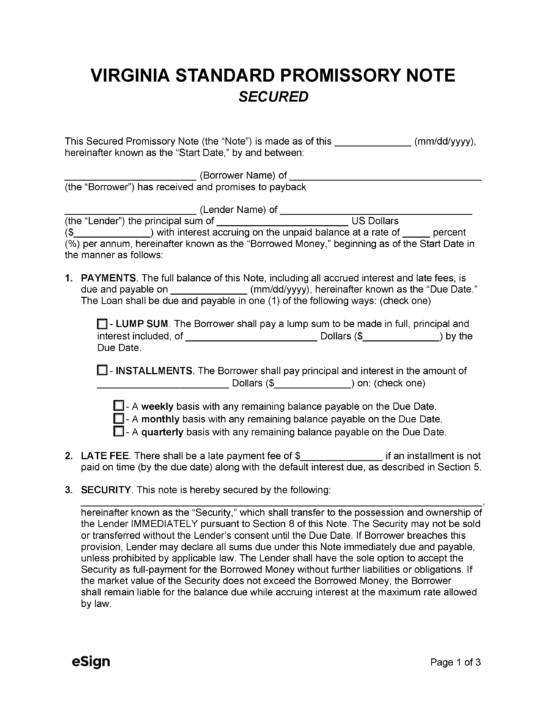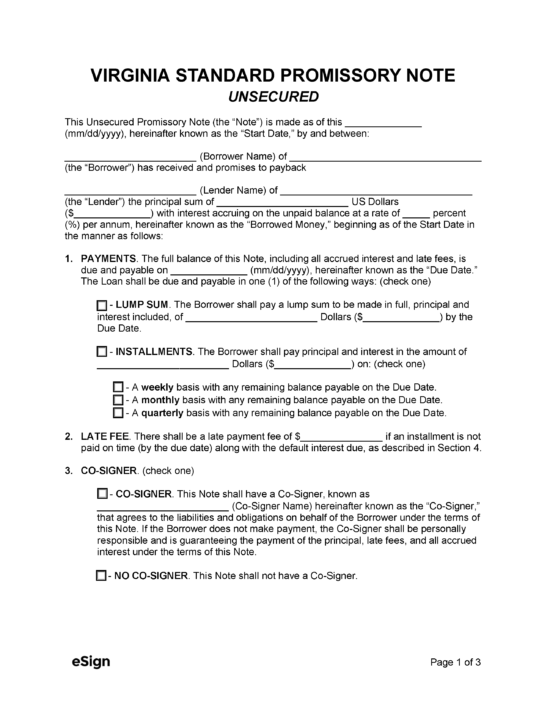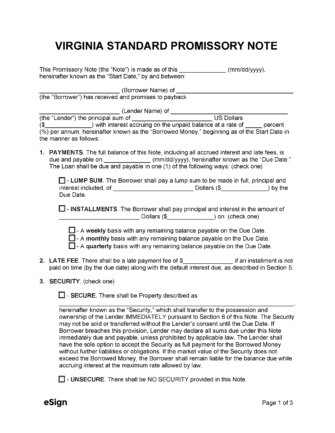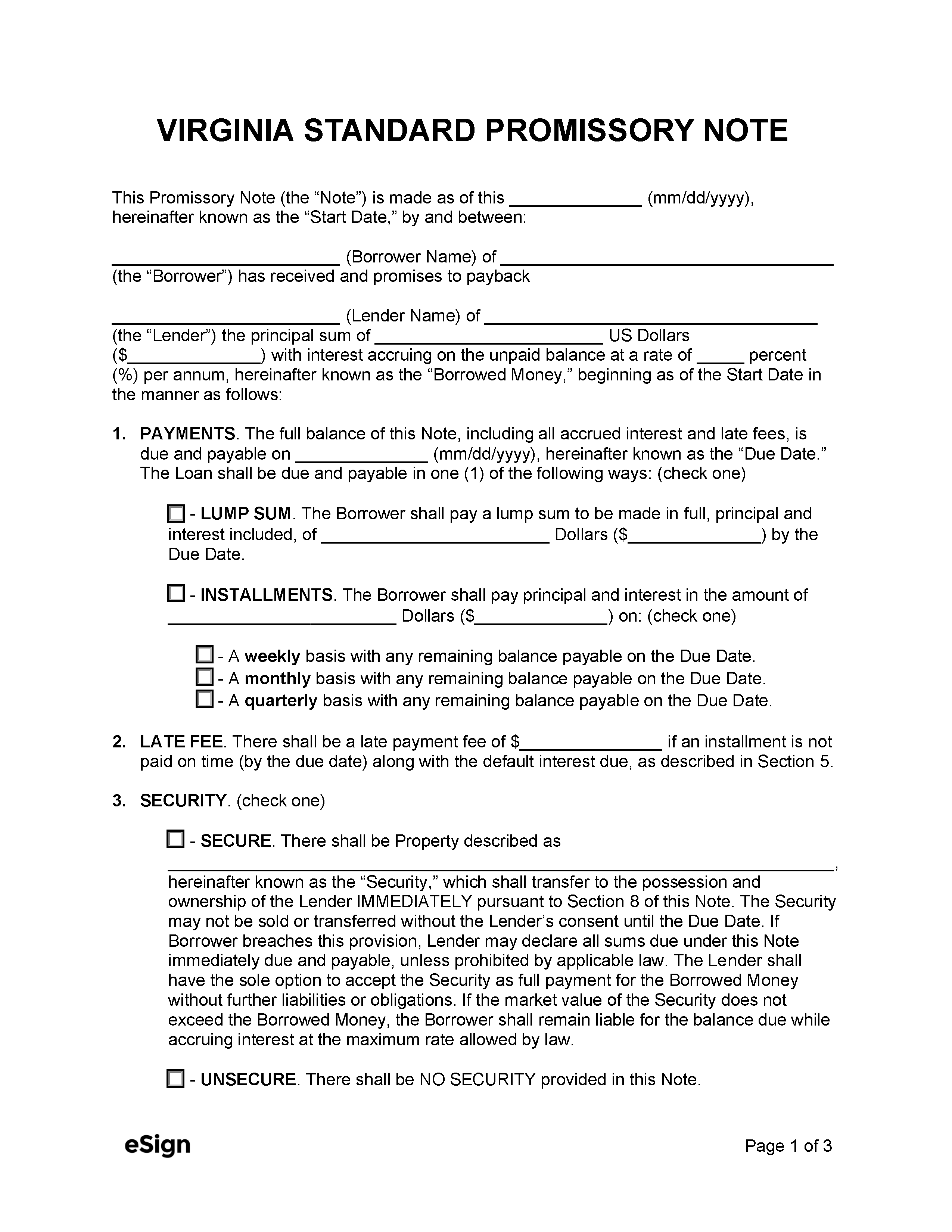Types (2)

Download: PDF, Word (.docx), OpenDocument

Download: PDF, Word (.docx), OpenDocument
Laws
- Interest & Usury Laws: Chapter 3 – Interest and Usury
- Usury Rate with Contract (§ 6.2-303(A)): 12%
- Usury Rate Generally (§ 6.2-301(A)): 6%
- Usury Rate with Bankruptcy Proceeding (§ 6.2-1522): 6%
- Usury Rate for Insurance Premiums (§ 38.2-1806(A)): 1.5%/month
- Usury Rate for Pawnbrokers (§ 54.1-4008(A)):
- Loans of $25 or less – 10%/month
- Loans of $100 or less – 7%/month
- Loans of more than $100 – 5%/month
- Usury Rate for Third Party Tax Payments (§ 58.1-3018(B)(2)): 16%

